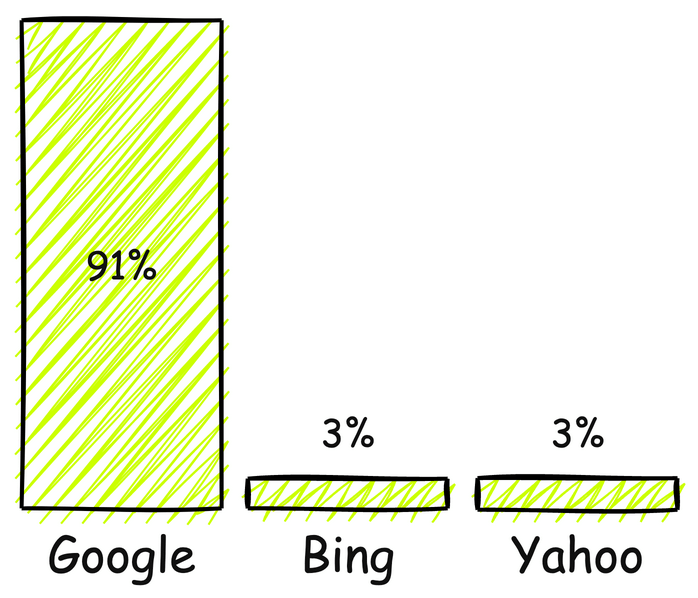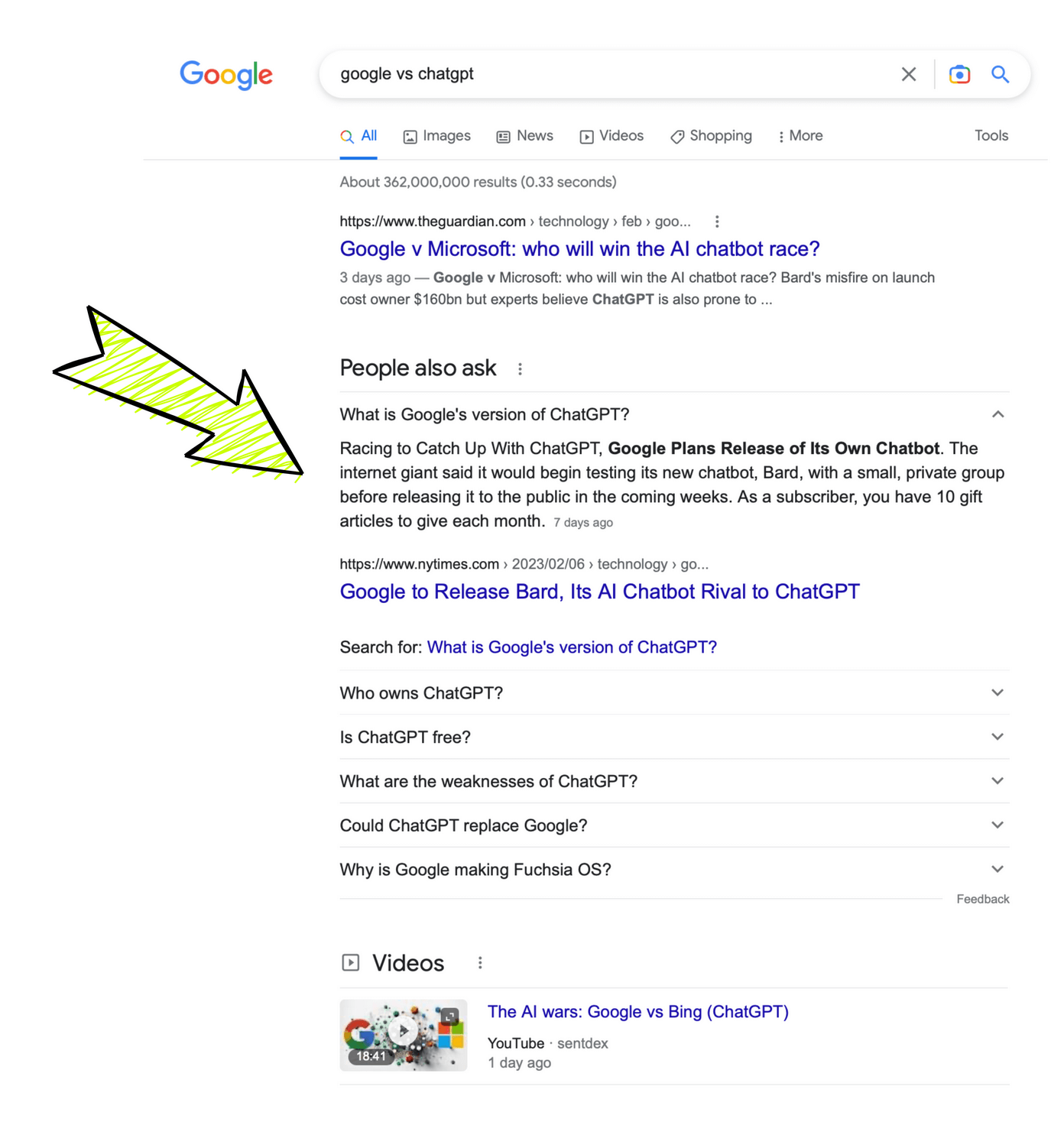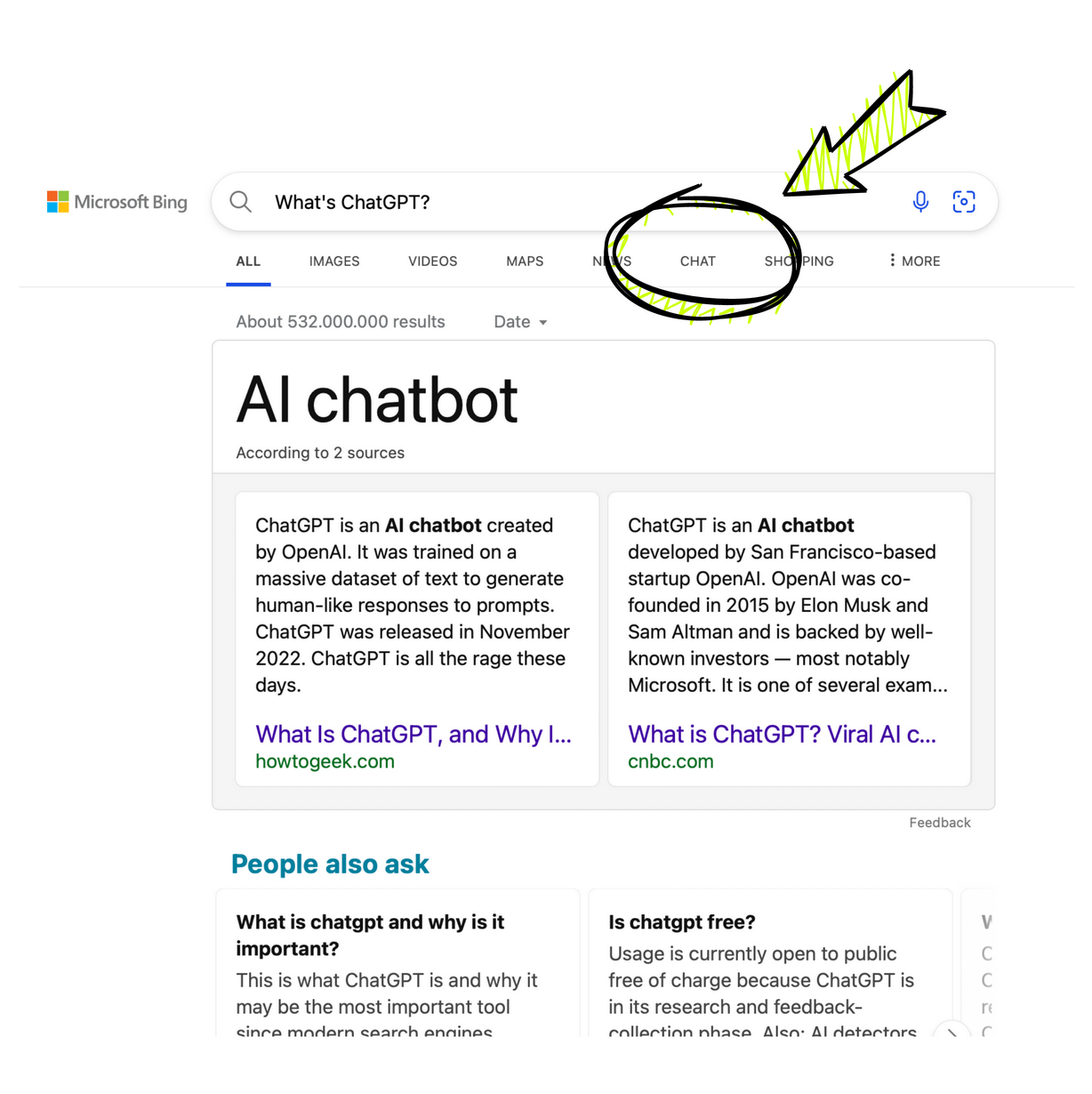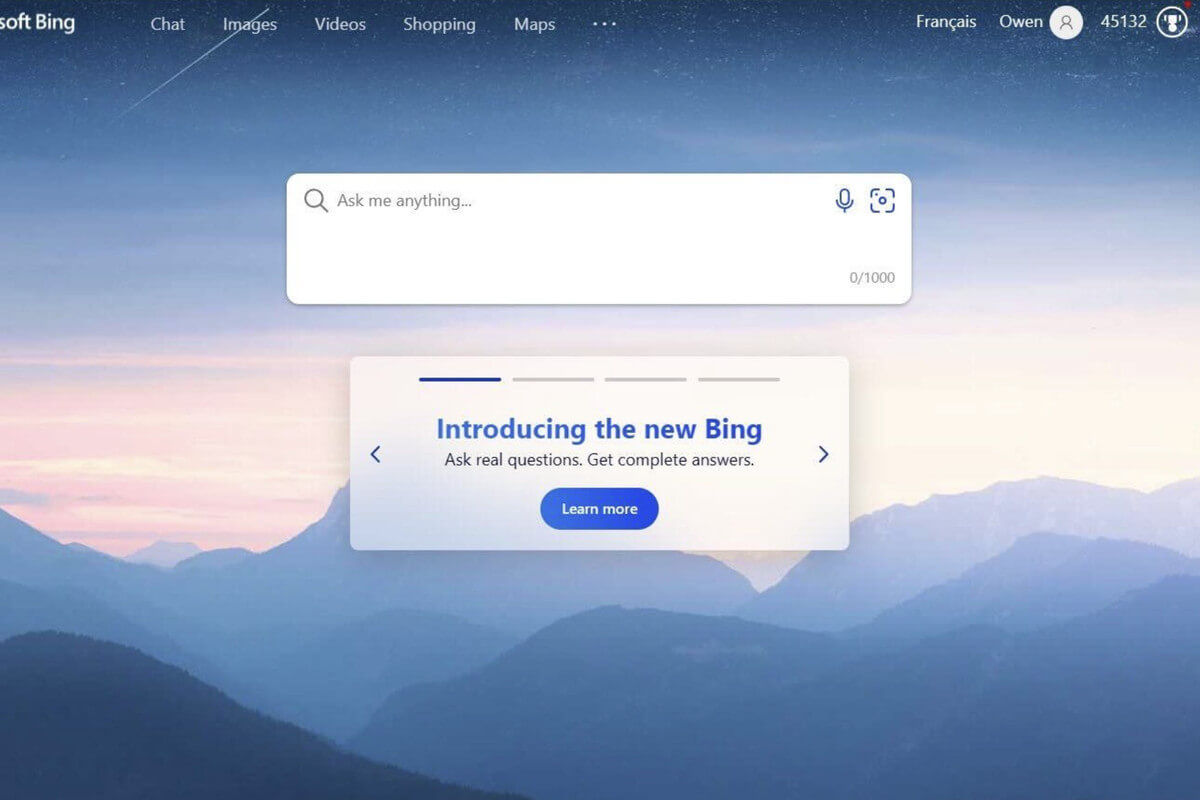With the emergence of ChatGPT, there were alarming rumors it would be the end of Google with news about the “panic button” and research for solutions to combat the accelerated growth of ChatGPT.
Google released Bard which was not very well received due to some incorrect answers. Microsoft announced a great partnership with OpenAI (the company behind ChatGPT) and has even started a great integration in the New Bing.

The path seems clear about user behavior with the new Bing tagline “Ask Real Questions. Get Complete Answers”.
According to Similarweb, Google has a share of more than 90% of searches in the world and the most popular browser, while Microsoft and Yahoo have about 3% each. The difference is huge.
What is at stake is not only the domain of user preference in searches but, mainly, the analysis of how user behavior is changing.
Will the current search engine result page (SERP) listing remote sites no longer be enough?
User behavior
The behavior of how we interact with search engines is already changing, when we look at the change in result pages in recent years. We are increasingly switching from simple keywords to asking the whole question in the search field.
We see Google increasing the amount of results on the results page without the need to click on sites such as weather forecast, answers to questions, excerpts from articles extracted from websites, embedded Youtube videos, maps and even song lyrics.

We also see “People also ask” with questions created from keywords and variations. As you click, other related questions appear.
In my opinion, Google’s desire will always be to deliver the content it needs without the need to click on the organic result, focusing the click intent to sponsored links.
If it’s a straightforward question, the user doesn’t want to waste time clicking through multiple sites until they find the answer. He wants a compilation of what is available on the Internet and, if possible, a quick direct answer.
What should we see in the future?

I believe we should see more and more change in the search result with integrations of answers like ChatGPT directly in the result. Proof of this is the popularity of extensions such as ChatGPT 4 Google which already has close to one million users.
Bing is also now providing the “Chat” tab where the user can chat directly with ChatGPT and will be more present in the new Bing.
We still don’t know how ChatGPT itself will be monetized beyond the $20/month subscription, but the high cost of generating AI responses may bar even faster growth and greater integrations for now. It is more likely that ChatGPT will be integrated into other services via API.
Will ChatGPT replace Google and Bing?

User behavior will require even greater integration of direct responses. The challenges will be related to optimizing the cost of processing so that it can reach an even greater number of users, in addition to including very quickly updating content almost in real time (historical events, news, etc). That’s why we need to understand the limits of artificial inteligence.
Google receives around eight billion searches a day, while ChatGPT is not yet available at this level of scale which could have a significant cost impact. Greater integration could even impact environmental pollution.
It is also worth watching Satya Nadella interview (Microsoft CEO) sharing his vision of integrating the new Bing with ChatGPT.
